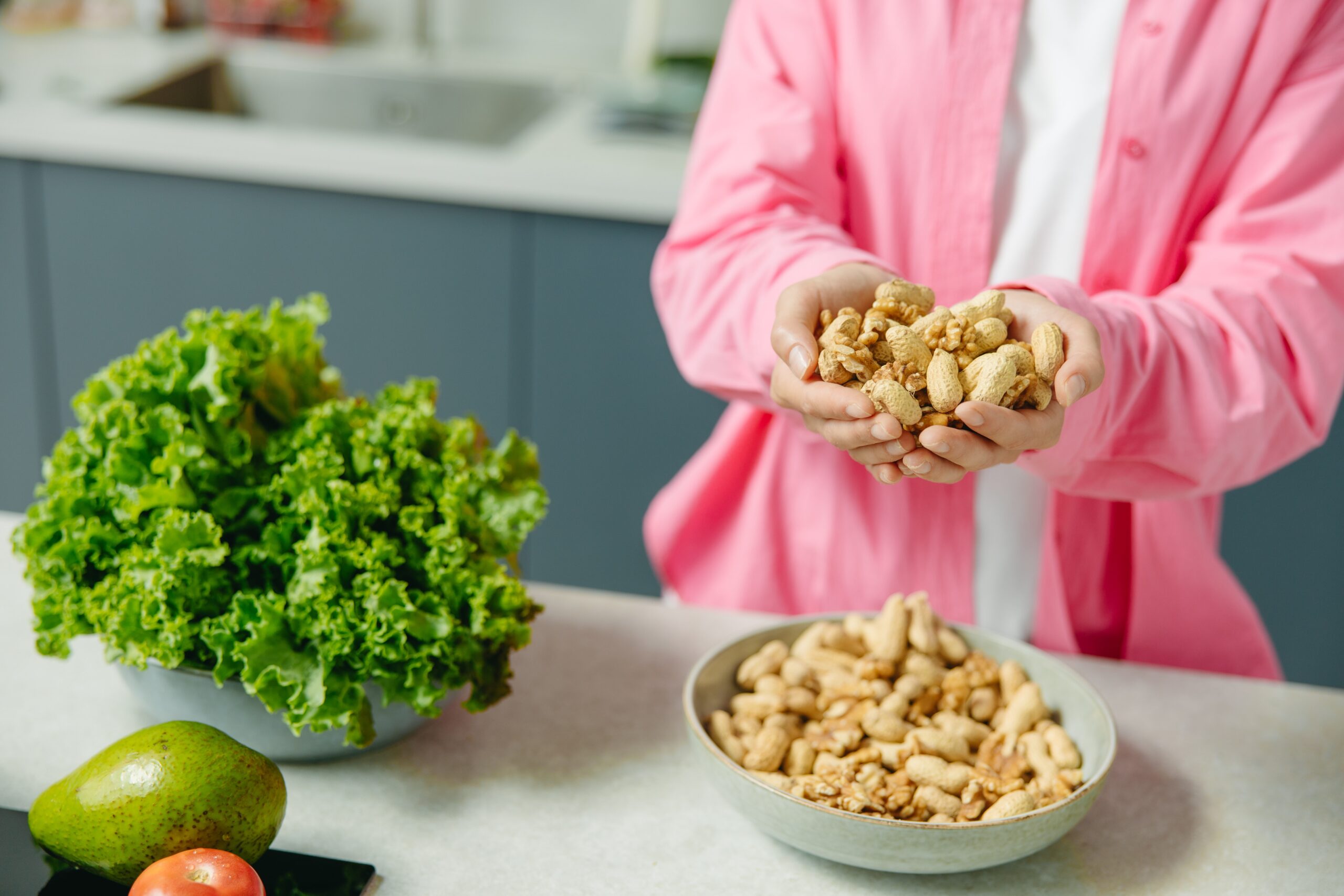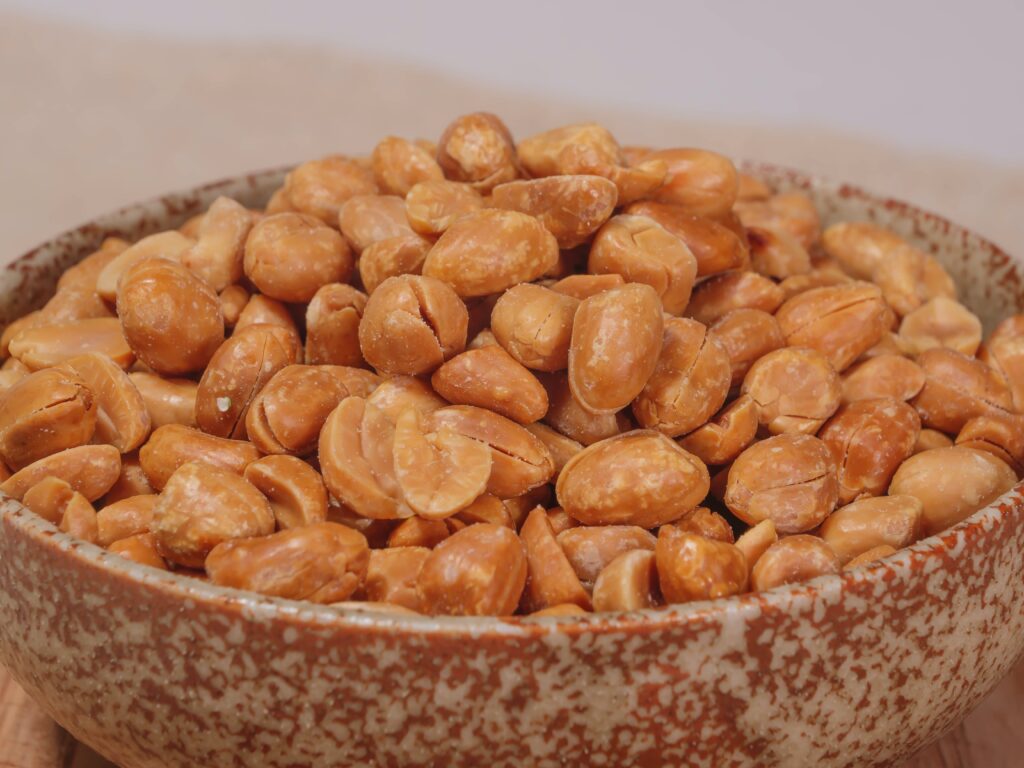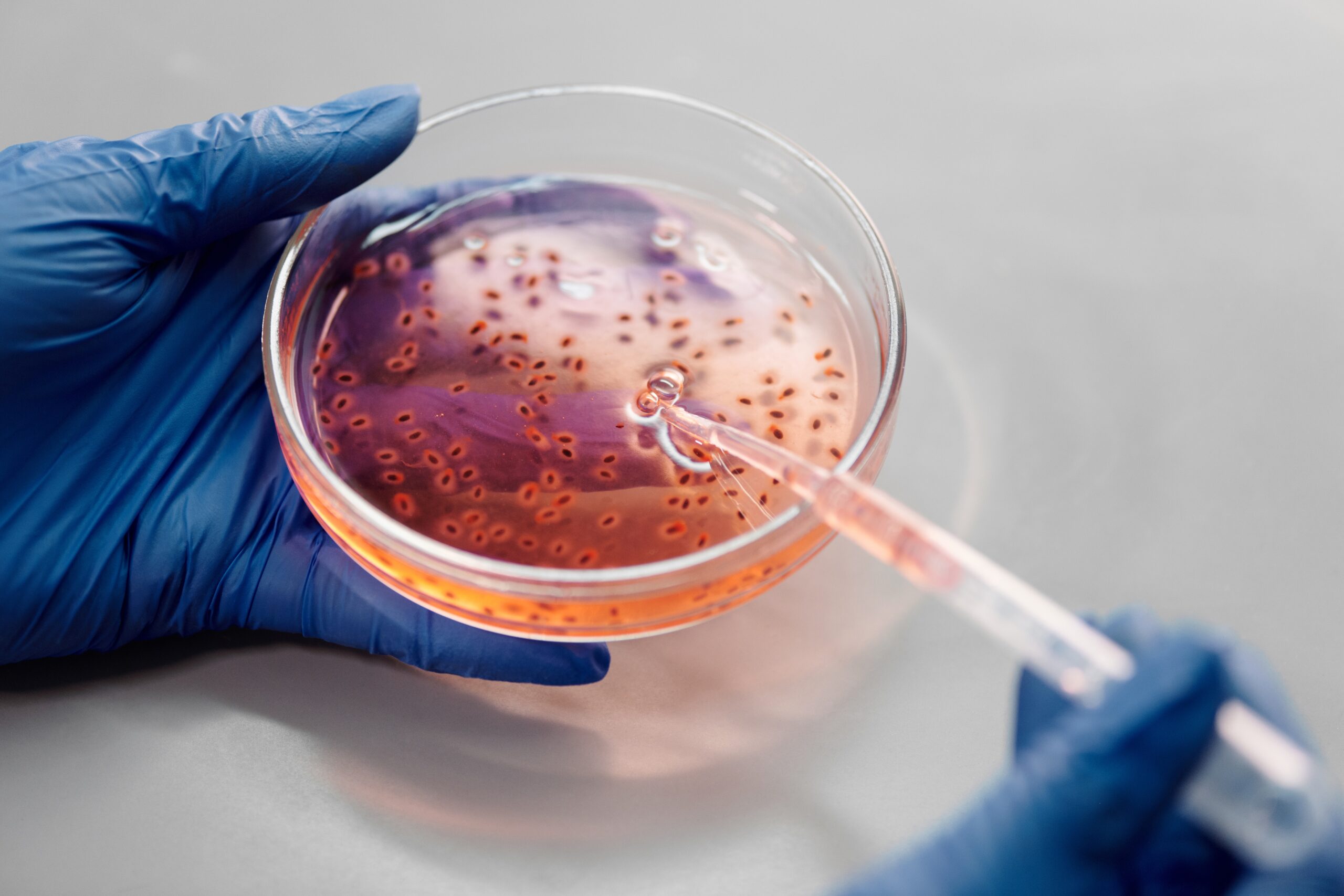
Introduction – Peanuts
Peanuts, often considered a humble snack, are anything but ordinary regarding their nutritional value and health benefits. These legumes are delicious and packed with essential nutrients that contribute to well-being. In this comprehensive blog, we’ll explore 15 fantastic health benefits and delve into the nutrition facts of peanuts, shedding light on why these little powerhouses deserve a prominent place in your diet.
1. Peanuts Rich in Essential Nutrients
Peanuts are nutrient-dense, containing various vitamins, minerals, and antioxidants essential for good health.
2. Peanuts Abundant in Protein
Peanuts are a great source of protein. Proteins are plant-based, making them an excellent choice for vegetarians and vegans.
3. Peanuts High in Healthy Fats
While peanuts contain fats, they are primarily monounsaturated and polyunsaturated fats, considered heart-healthy.
4. Weight Management
Including peanuts in your diet can help you feel full and satisfied, making it easier to manage your weight.
5. Fiber Content
Peanuts are rich in dietary fibre, which aids in digestion. It promotes a feeling of fullness and helps regulate blood sugar levels.
6. Heart Health
The healthy fats, fibre, and antioxidants in peanuts reduce the risk of heart disease. Peanuts contribute to heart health.
7. Blood Sugar Regulation
Despite their sweet taste, peanuts have a low glycemic index.GI can help stabilize blood sugar levels.
8. Bone Health
Peanuts contain phosphorus, magnesium, and manganese, essential for maintaining strong and healthy bones.
9. Antioxidant Properties
Antioxidants like resveratrol, which reduces the risk of chronic diseases, are found in peanuts.
10. Skin Health
By shielding it from UV rays and preserving its flexibility, the vitamin E in peanuts can help preserve healthy skin.
11. Improved Cognitive Function
Niacin is a B vitamin found in peanuts. Peanuts help improve cognitive functions and reduce the risk of cognitive decline.
12. Reduced Risk of Gallstones
Consumption of peanuts regularly has been associated with a lower risk of developing gallstones.
13. Muscle Health
Peanuts are a good source of potassium, which helps maintain proper muscle function and prevent cramps.
14. Nutrient for Pregnant Women
Peanuts provide essential nutrients like folate and iron, which are crucial for the health of both the mother and the developing fetus.
15. Peanuts Reduced Risk of Stroke
Studies suggest that regular peanut consumption may be helpful to a lower risk of stroke, a condition that can seriously affect overall health.
Nutrition Facts of Peanuts

To truly appreciate the health benefits of peanuts, it’s essential to understand their nutritional profile. Here’s a breakdown of the critical nutrients found in a 1-ounce (28-gram) serving of dry-roasted peanuts:
Calories: Approximately 161 calories
Protein: About 7 grams
Fats: Approximately 14 grams (mainly monounsaturated and polyunsaturated fats)
Carbohydrates: About 4 grams
Fiber: Approximately 2 grams
Sugar: Less than 1 gram
Vitamins and Minerals: Peanuts are rich in various vitamins and minerals, for instance- vitamin E, Niacin (vitamin B3), folate (vitamin B9), magnesium, phosphorus, potassium, and manganese.
Now, let’s delve into the specific health benefits of peanuts in more detail.
1. Heart Health

Due to their high concentration of unsaturated fats, it has been associated with a lower risk of heart disease; peanuts are a heart-healthy snack. These healthy fats help lower LDL (bad) cholesterol levels. It improves blood vessel function and also reduces inflammation. Antioxidants like resveratrol also contribute to heart health by protecting the arteries from damage.
2. Weight Management
Despite their calorie density, peanuts can be a valuable addition to a weight management plan. The combination of protein, healthy fats, and fibre in peanuts helps increase satiety and reduce overall food intake. It can prevent overeating and contribute to weight loss or maintenance.
3. Blood Sugar Control
Peanuts have a low glycemic index (GI).GI helps to control blood sugar. Peanuts have a minimal impact on blood sugar levels. They are suitable for people with diabetes or those trying to control their blood sugar because of their delayed digestion and nutrient absorption. It helps reduce blood glucose spikes and crashes.
4. Digestive Health
Peanuts are also an excellent source of dietary fibre. It supports digestive health by promoting regular bowel movements and preventing constipation. Fibre also acts as a prebiotic, nourishing beneficial gut bacteria and supporting overall health.
5. Bone Health
Peanuts contain essential minerals like phosphorus, magnesium, and manganese, all of which play a role in maintaining strong and healthy bones. Phosphorus is a crucial component of bone mineral density, magnesium helps with calcium absorption, and manganese contributes to bone formation.
6. Antioxidant Protection
Antioxidant protection is critical to protect our cells from stress and damage. Peanuts contain various antioxidants, including resveratrol, also found in red wine and associated with a reduced risk of severe heart and liver diseases.
7. Cognitive Function
Peanuts are essential for brain health. Vitamin B3, known as Niacin, is crucial in DNA repair, neurotransmitter production, and overall cognitive function. Adequate niacin intake may help reduce the risk of cognitive decline as we age.
8. Peanuts for Skin Health
The vitamin E content in peanuts contributes to skin health by protecting it from UV damage, reducing the risk of premature ageing, and maintaining skin elasticity. Vitamin E is also involved in wound healing and skin repair.
9. Muscle Function
Potassium, found in peanuts, is an electrolyte vital in muscle function and preventing muscle cramps. Including potassium-rich foods like peanuts in your diet can help maintain proper muscle function.
10. Peanuts- Nutrients for Pregnancy
Peanuts are a valuable folate (vitamin B9) source crucial for pregnant women. Folate supports the development of the neural tube in the fetus, reducing the risk of congenital disabilities. Additionally, the iron content in peanuts helps prevent anaemia during pregnancy.
11. Reduced Risk of Gallstones
Gallstones can be painful and may require medical intervention. Due to their high fibre content and healthy fat profile, peanut helps lower the risk of gallstones.
12. Stroke Prevention
Stroke, a severe medical illness, may negatively impact an individual’s health. According to research, consuming peanuts may reduce your risk of stroke. The nutrients in peanuts, such as folate, magnesium, and healthy fats, contribute to overall vascular health.
13. Nutrient-Rich Snacking
Peanuts make for a nutrient-rich and satisfying snack. They are portable, easy to carry, and require no refrigeration. A small handful of peanuts can provide a quick and nutritious energy boost, whether at work, school or on the go.
14. Versatile Culinary Ingredient-Peanuts

Peanuts are incredibly versatile in the kitchen. It can be used as a snack, added to salads for crunch, blended into creamy peanut butter, or used as a flavorful ingredient in various dishes, from savoury to sweet.
15. Budget-Friendly Nutrition-Peanuts
Peanuts offer excellent nutritional value at an affordable price. They provide essential nutrients that can be a cost-effective way to meet your dietary needs without breaking the bank.
Conclusion
Peanuts are a nutritional powerhouse that offers a wide array of health benefits. From heart health and weight management to cognitive function and skin health, these legumes have much to offer. Incorporating peanuts into your diet, whether as a snack or as part of your meals, can be a helpful and healthier way to boost your overall health.
Just remember to consume them in moderation, as they are high in calories, and if you or anybody in your household has a peanut allergy, always be aware of potential allergies. With their impressive nutritional profile, peanuts are a testament to the idea that sometimes, the simplest foods can provide the most significant benefits for our well-being.



